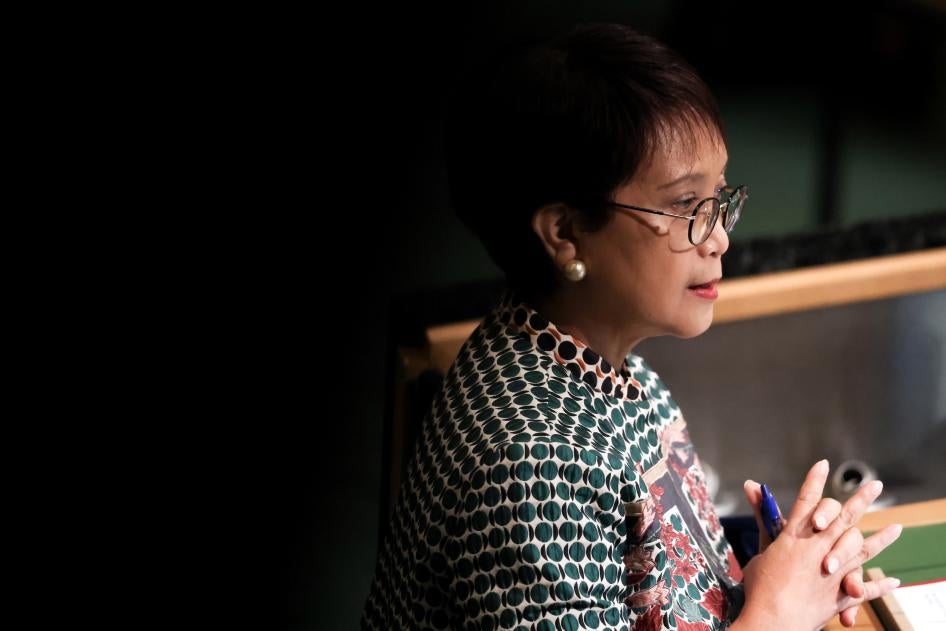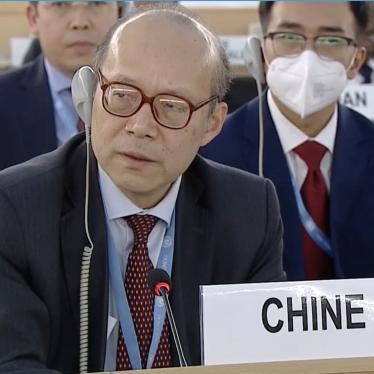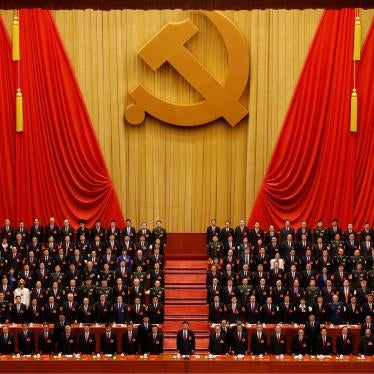In 2019, when my Human Rights Watch colleagues visited Indonesia’s capital, Jakarta, they sought meetings with government officials and opinion leaders to encourage them to speak up against the discrimination and abuses suffered by Uyghurs and other Muslims in Xinjiang, China. Instead of an enthusiastic reception, they encountered a wall of silence.
While civil society activists expressed concern about Chinese government human rights violations, some Indonesian Muslim leaders criticized the “American media” or “Western organizations” for mischaracterizing the situation in Xinjiang. Indonesian government officials also didn’t want to address the issue, insisting that what happens to the Uyghurs is a domestic matter for the Chinese authorities.
Now this disregard for the Uyghurs has gone from bad to worse. Following a report by the United Nations High Commissioner for Human Rights, which found that human rights abuses in Xinjiang may amount to crimes against humanity, Indonesia’s representative to the UN Human Rights Council, Febrian Ruddyard, explained his government's decision to vote against a motion to discuss the situation in Xinjiang. Indonesia’s vote against the motion – which failed, 19 votes to 17 – was crucial. Following the vote, Ukraine announced its support for the motion, narrowing the final margin to one.
The Foreign Ministry’s director for human rights, Achsanul Habib, claimed there was an understanding among Human Rights Council members representing the Organisation for Islamic Cooperation (OIC) that they should not let the UN Human Rights Council be used as a vehicle to promote “political rivalries.” By that he meant the rivalry between China and the West.
But the voting record of other Muslim-majority countries does not reflect this theory. Turkey and Albania cosponsored the draft resolution to discuss the Xinjiang report. Somalia voted “yes.” Malaysia’s abstention was also a telling counterpoint to Indonesia’s “no” vote.
Muslim-majority countries, like Indonesia, have defended the rights of Rohingya Muslims in Myanmar, condemned Israel’s apartheid against Palestinians, and denounced acts of Islamophobia in Western countries. But a “no” vote on Xinjiang undermines their credibility to address discrimination against Muslims.
The OIC Charter calls on its member states to “safeguard the rights, dignity and religious and cultural identity of Muslim communities and minorities in non-Member States.” Indonesian authorities need to explain their failure to uphold the OIC Charter, and, more importantly, what actions they plan to take in the future to help protect the rights of Uyghurs and other Muslims in Xinjiang. Indonesia’s shameless betrayal of the Uyghurs should not happen again.









